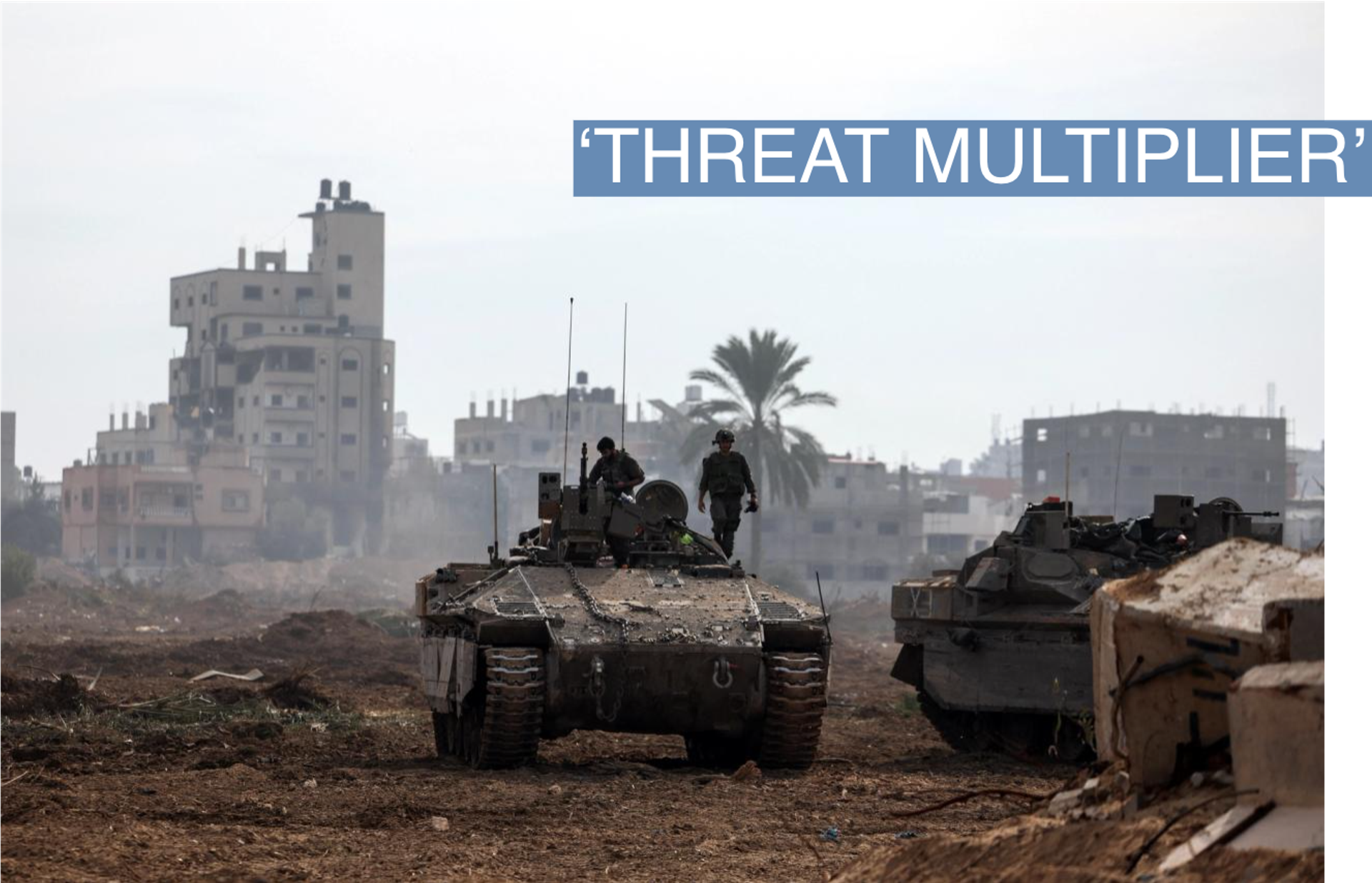The News
Emissions from the Israel-Hamas war could have a significant impact on climate change, a new study found.
Analysis by researchers in the U.S. and the U.K. shows that the majority of carbon emissions generated in the first two months of the war can be attributed to Israel’s aerial bombardment of the Gaza Strip, The Guardian first reported Tuesday.
Few nations publicly declare how much carbon their militaries emit. Reporting such information is voluntary, and the data that does exist is incomplete.
SIGNALS
Addressing climate change can lead to more peace and stability
Subsequent crises in Gaza have environmentally devastated the area’s ecology, the Middle East Institute noted. A water treatment plant bombed in 2014 still leaks contaminated sewage into the Red Sea, and groundwater is not safe to drink. Regional conflicts exacerbate the climate crisis, the MEI said, in part, because war leads to spiking energy prices as a result of nations prioritizing energy security over lowering carbon emissions. Climate action is inextricably linked to lasting peace prospects: “Progress on one supports the other. Climate change acts as a threat multiplier in fragile regions, but mitigating emissions and boosting adaptation can also bolster stability by easing resource strains,” the organization argued.
Nations should engage in climate change dialogue before and during wars
Estimates based on available data suggest that militaries are responsible for about 5.5% of greenhouse gas emissions globally each year, The Conflict and Environment Observatory found. Massive amounts of fossil fuels are typically used during military campaigns, and rubble from explosive attacks create debris that lead to air and soil pollution. These impacts could be mitigated if nations committed to further dialogue about how wars fuel the climate crisis, Doug Weir, CEOBS’ research and policy director, argued. “However, these opportunities are dependent on more attention being paid to the environment before, during and after conflicts,” he wrote. “If we fail to call for greater protection before and during conflicts, damage will be seen as acceptable.”
The Russia-Ukraine war made the green transition more urgent, but it still presents huge climate risks
After Russia launched its full-scale invasion of Ukraine, many countries turned to renewable energy sources to reduce their reliance on Russian oil and natural gas, inadvertently causing a small win in the race toward net-zero emissions. But the environmental threat from the war is still exceptional: In its early months, nations contending with an energy supply shortage re-fired coal plants and invested in fossil fuels. Meanwhile, a shortage of fertilizers and grain spurred some countries to expand their production of food staples, posing a risk to biodiversity. “The war in Ukraine has created new problems on the energy market and forced a new appraisal of the transition to renewable energy,” Angelina Davydova wrote for the Carnegie Endowment for International Peace.

